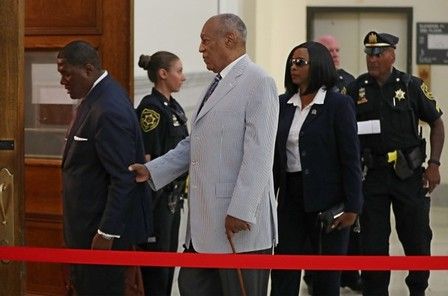Advertisement
Debt collector on trial for U.S. scheme aimed at thousands

By Nate Raymond
NEW YORK (Reuters) – Efforts to crack down on what U.S. officials view as unscrupulous debt collection practices are taking center stage at a trial of a Georgia man who prosecutors say oversaw a scheme that victimized more than 6,000 people nationwide.
A prosecutor told jurors in Manhattan federal court at the opening of a trial on Tuesday that John Williams, 50, encouraged employees at his debt collection firm – Williams, Scott & Associates LLC – to shake down consumers and coerce them into paying money they did not owe.
Assistant U.S. Attorney Sarah Paul said Williams’ firm defrauded 6,000 customers from 2009 to 2014 into paying about $4.1 million by misrepresenting how much they owed and by falsely claiming they could face prison time.
“The defendant did all of this so he could make money -millions of dollars for himself,” she said.
Williams has pleaded not guilty to the charge of conspiracy to commit wire fraud. His lawyer, Mark DeMarco, urged jurors to put aside their emotions as they heard evidence about unseemly practices.
“We ask that you give Mr. Williams a fair trial,” he said.
The trial comes amid heightened regulatory attention toward debt collection, which the Consumer Financial Protection Bureau (CFPB) lists as the No. 1 most-complained about area of consumer financial services.
Six employees arrested with Williams in November 2014 have pleaded guilty, and three of them are expected to testify as cooperating witnesses. Williams, who has been held without bail since his arrest, faces up to 20 years in prison.
The prosecution is part of the more aggressive approach taken by Manhattan U.S. Attorney Preet Bharara against consumer-focused scams, which includes filing criminal charges over behavior traditionally pursued civilly by regulators.
“Happily, there has been a regulatory crackdown, but there needs to be, when appropriate, a criminal crackdown also,” Bharara said in announcing charges against Williams.
Debt collection firms such as Williams’ buy delinquent debts, often for just pennies on the dollar, and try to collect the full amount the original lender claimed. These firms say they are simply seeking recovery on rightfully owed debt.
But regulators say many firms engage in abusive tactics while targeting financially struggling individuals.
The case against Williams was announced in November 2014, six months after the Federal Bureau of Investigation raided the debt collector and the Federal Trade Commission (FTC) sued to halt its operation.
Prosecutors said employees at Williams, Scott & Associates contacted consumers and falsely referred to themselves as “detective” or “investigator,” claimed to be tied to government agencies and told them they could face arrest.
Scripts read by employees on the calls included legal-sounding language, such as that the “statute of limitations” on the consumers’ “civil legal rights” had expired, prosecutors said.
After the FBI raid, Williams established a new debt collection company that engaged in similar practices, prosecutors said.
The case stemmed from a CFPB referral, and Bharara has said he has reached out to the agency and the FTC about sending him more cases.
Other consumer-focused cases by Bharara’s office since 2013 have involved a $2 billion online payday lending enterprise; a debt settlement firm; and individuals accused of participating in a record $31 million debt collection scheme.
The case is U.S. v. Williams, U.S. District Court, Southern District of New York, No. 14-cr-00784.
(Editing by Andrew Hay and Matthew Lewis)










